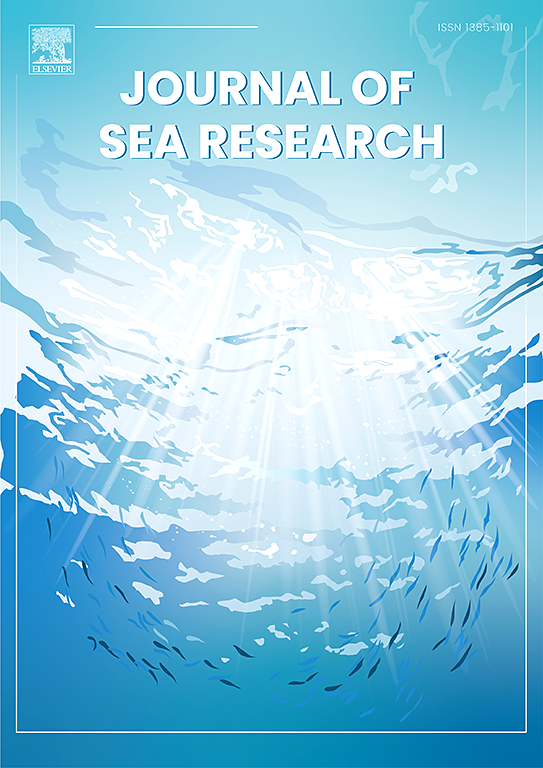The challenge of harvesting common sole (Solea solea) in highly selective trawl fisheries
IF 2.9
4区 地球科学
Q2 MARINE & FRESHWATER BIOLOGY
引用次数: 0
Abstract
Common sole (Solea solea) is an economically important species in several European trawl fisheries, yet little is known about the size selective properties of codends used in bottom trawl fisheries targeting sole. This study presents results from a sea trial conducted in the inner Danish waters where common sole is fished in a seasonal trawl fishery using a 90 mm diamond mesh codend with a mandatory large mesh escape panel. To improve understanding of the selectivity in this gear, we in addition tested a plain 90 mm diamond mesh codend without an escape panel. This combination of codend mesh size and large mesh escape panel is part of an ambitious management plan aimed at eliminating bycatch of cod (Gadus morhua) in trawl fisheries in the inner Danish waters. In the fishery for common sole, we found a severe mismatch between gear regulations and minimum conservation reference size of the target species. The outcome is a highly inefficient fishery in which only 22 % (CI: 18–27 %) by weight of the marketable sole is retained in the 90 mm diamond mesh codend. Further, we estimated that 25 % (CI: 16–35 %) of the sole entering the codend would contact the mandatory escape panel and escape, resulting in a total loss of 83 % (CI: 79–87 %) of marketable sole through the mandatory gear. The inefficiency in this fishery demonstrates the need for other means than gear specifications to regulate this type of fishery.
在高度选择性拖网渔业中捕捞普通鳎鱼(Solea solea)所面临的挑战
普通鳎(Solea solea)是欧洲几种拖网渔业中具有重要经济价值的鱼种,但人们对底拖网捕捞普通鳎所用鳕鱼鳕网的尺寸选择特性知之甚少。本研究介绍了在丹麦内水域进行的一项海上试验的结果,在该水域的季节性拖网渔业中,普通鳎的捕捞使用了 90 毫米菱形网眼的鳕鱼竿,并强制使用了大网眼逃逸板。为了更好地了解这种渔具的选择性,我们还测试了不带防逃板的普通 90 毫米菱形网目鳕网。鳕网网目尺寸和大网眼逃生板的组合是一项雄心勃勃的管理计划的一部分,该计划旨在消除丹麦内水域拖网渔业中的鳕鱼(Gadus morhua)兼捕现象。在普通鳎捕捞中,我们发现渔具规定与目标鱼种的最小保护参考尺寸严重不匹配。其结果是渔业效率极低,按重量计算,90 毫米菱形网目鳕鱼只能捕获 22%(CI:18-27%)的可销售鳎鱼。此外,我们估计有 25%(CI:16%-35%)的鳎鱼进入鳕鱼网箱后会接触到强制逃逸板并逃逸,因此通过强制渔具共损失了 83%(CI:79%-87%)的可销售鳎鱼。该渔业的低效率表明,除渔具规格外,还需要其他手段来监管此类渔业。
本文章由计算机程序翻译,如有差异,请以英文原文为准。
求助全文
约1分钟内获得全文
求助全文
来源期刊

Journal of Sea Research
地学-海洋学
CiteScore
3.20
自引率
5.00%
发文量
86
审稿时长
6-12 weeks
期刊介绍:
The Journal of Sea Research is an international and multidisciplinary periodical on marine research, with an emphasis on the functioning of marine ecosystems in coastal and shelf seas, including intertidal, estuarine and brackish environments. As several subdisciplines add to this aim, manuscripts are welcome from the fields of marine biology, marine chemistry, marine sedimentology and physical oceanography, provided they add to the understanding of ecosystem processes.
 求助内容:
求助内容: 应助结果提醒方式:
应助结果提醒方式:


